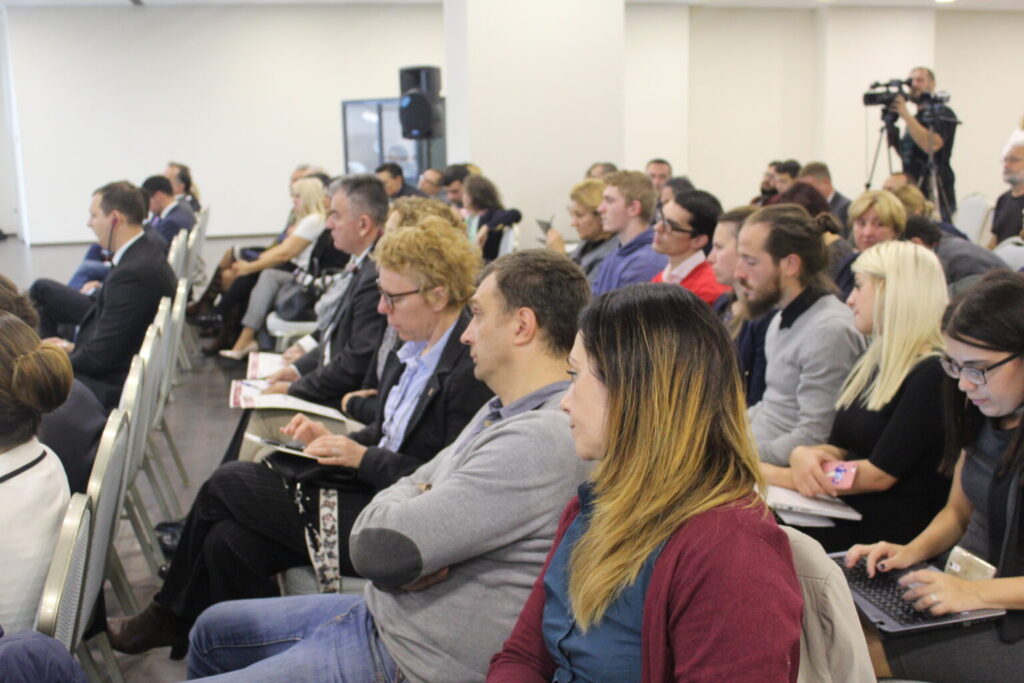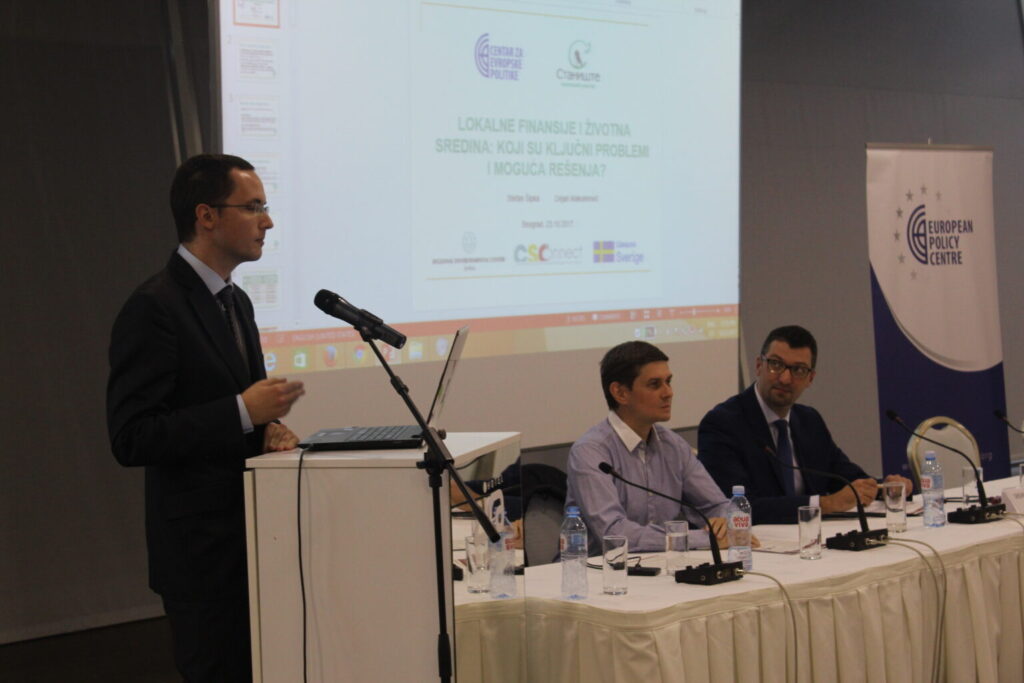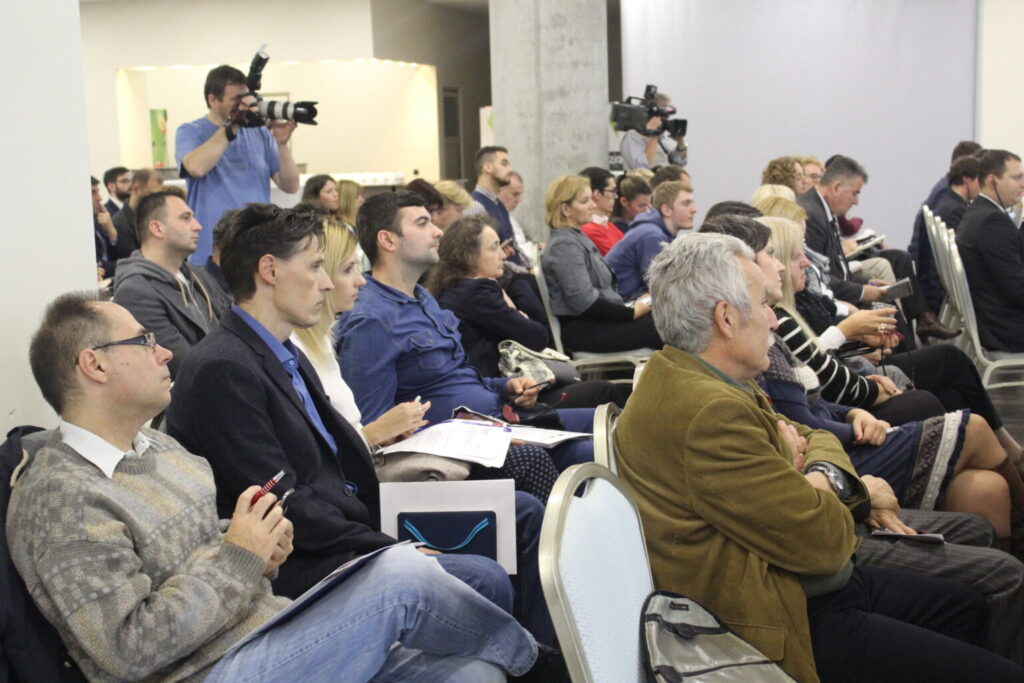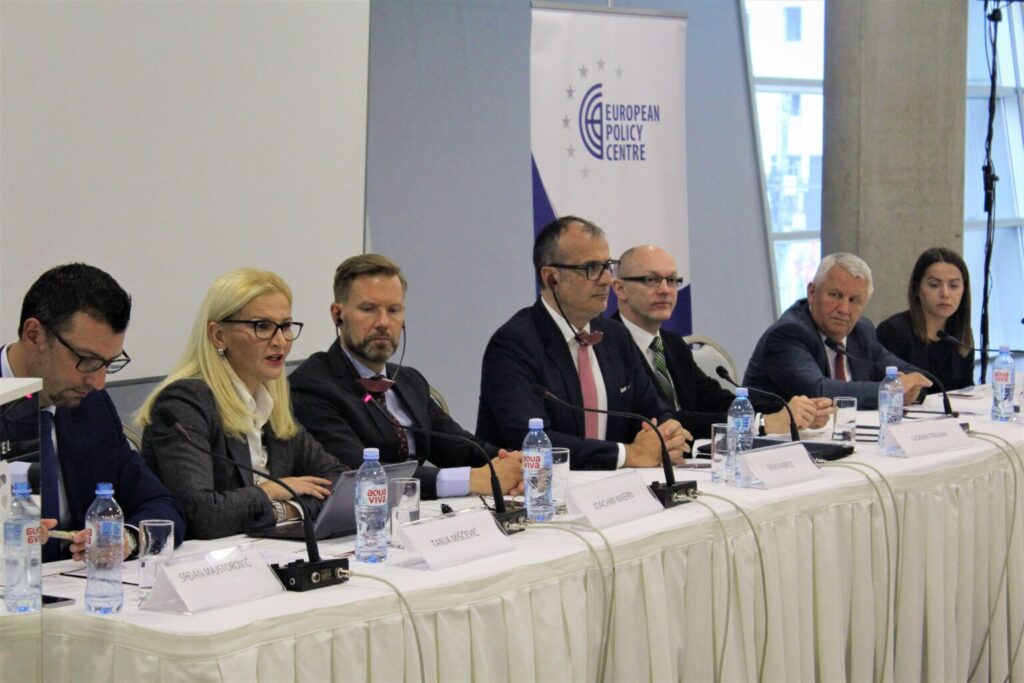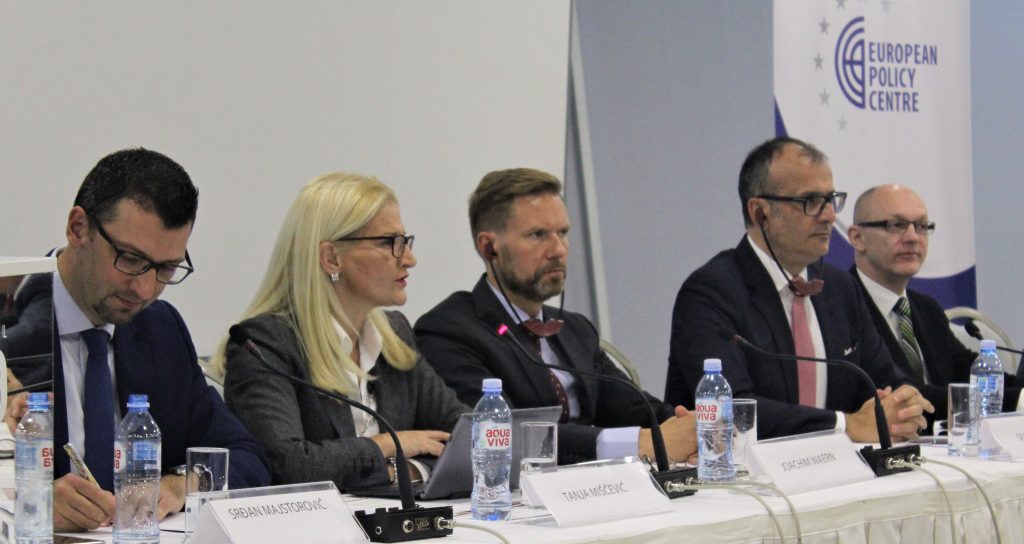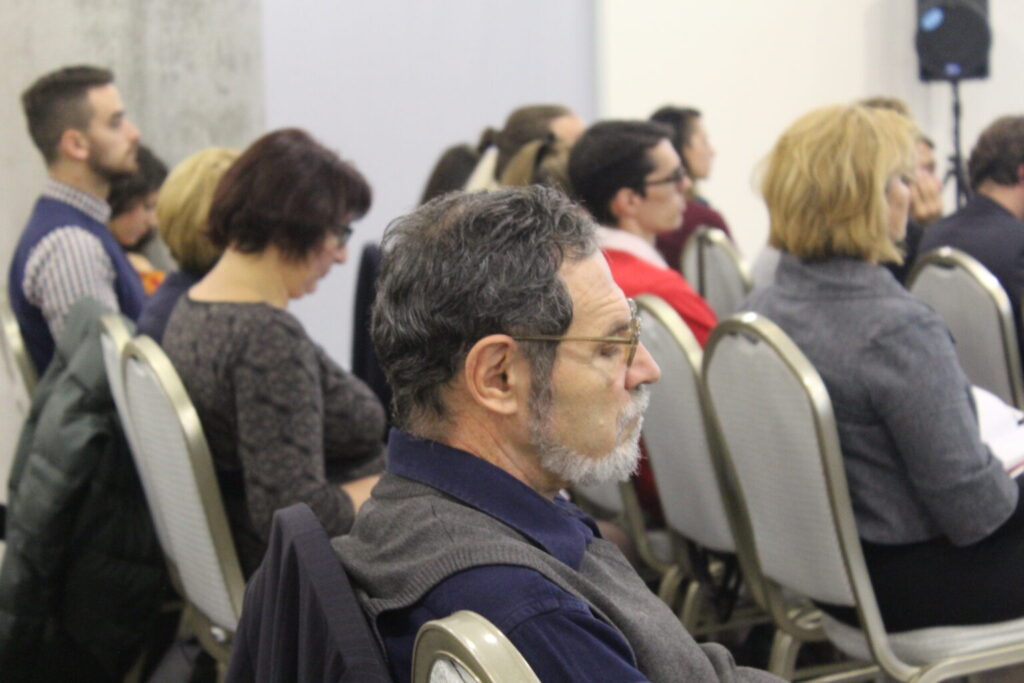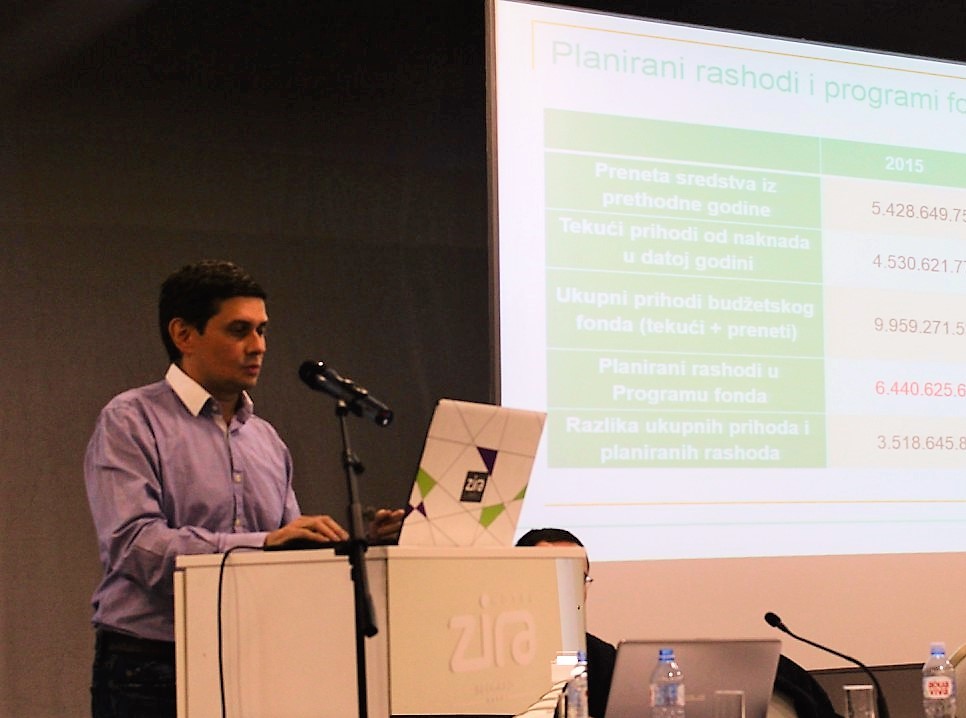Headquarters: Svetog Nauma 7, 11000
Office address: Đorđa Vajferta 13, 11000
Phone:: +381 11 4529 323

October 23, 2017 – The final conference “Environmental Protection and the Road to EU Membership: What are the challenges regarding eco-financing at the local level?” was held today in Belgrade. Research on this subject, which was conducted by CEP and Environmental Center Habitat, within the CSOnnect institutional grant, was presented at the conference.
The conference was moderated by Srđan Majstorovic, CEP’s Chairman of the Governing Board, and the participants were addressed by Joachim Waern, Deputy Head of Mission of Sweden to Serbia, Goran Trivan, Minister of Environmental Protection of the Republic of Serbia, Sem Fabrizi, Head of the EU Delegation to Serbia, Tanja Miščević, Head of the Negotiating Team for the Accession of the Republic of Serbia to the EU, Radoslav Sretenović, President of the State Audit Institution (DRI) and Ruza Radović, Director of the Regional Environmental Center (REC) in Serbia.
Majstorović acquainted everyone with the research and highlighted that the results showed that the situation in the field of environmental protection financing is not good, but that there is significant room for improvement of the regulative rules and spending of funds in local governments, as well as raising the level of expertise of those in the local community working on the implementation of projects in this area. He stressed that it is necessary that local civil society organizations get more involved in monitoring of the process and that local governments need to work on improving the dialogue with civil society.
“Chapter 27 is technically very demanding and expensive. This area is very complex – a third of EU legislation is contained in it and we have a lot of work ahead of us,“ said Majstorović.
Joachim Waern, Deputy Head of Mission of Sweden to Serbia, said that investment in environmental protection is a long-term investment, and, although it costs a lot initially, it will pay off in the long run.
Sweden, as a country that puts environmental protection high on its agenda, is donor for this project within which this research was conducted.
Goran Trivan, Minister of Environmental Protection in Serbia, expressed sharp criticism of the current situation in this area.
“Serbia currently allocates only between 0.2% and 0.5% of its GDP on environmental protection, and should set aside 10 times more for these purposes. An even bigger problem is that we mismanage even these small funds,“ said Trivan, adding that we should be aware that order in this area must be introduced, and that the EU will certainly put pressure on us.“
At present, we must invest far more money and effort in order to achieve what is expected of us, he said.
“If we do not care about the environment, we are not on the right track. The EU could help us, but if we do not participate in financing of projects, no one will give us money,” said the Minister, adding that “if the whole society does not pitch in, with a strong contribution from CSOs, there will be no results in this area. This is not an issue that is politically charged – green should be above every color,” concluded Trivian.
Head of the EU Delegation to Serbia Sem Fabrizi said that it is important to involve local governments in decision-making and that they should bear greater burden of responsibility. Fabrizi said that Serbia made progress in the field of environmental protection, primarily through the renewal of the Green Fund, and expressed the hope that Chapter 27 will soon be opened. How much the EU cares about this area, Ambassador said, is evidenced by the fact that the EU has earmarked 360 million euros for this area for Serbia.
Tanja Miščević, Head of the Negotiating Team for the Accession of the Republic of Serbia to the EU, said that Chapter 27 is one of the reasons that we can use to explain why Serbia needs European integration.
“From Chapter 27 it is clear and easy to see how much benefit Serbia will obtain by joining the EU,” she highlighted.
She informed the participants that Serbia has covered half of the way when it comes to this Chapter, and that it will send the first draft to the European Commission for consultations in the first half of 2018.
President of the State Audit Institution (DRI), Radoslav Sretenović stressed that the DRI has not dealt with examining irregularities in this area, but that presented research suggests that this should be done in the future.
After addressing the panelists, Stefan Šipka, a Researcher at the European Policy Centre and the coordinator of CSOnnect grant, and DejanMaksimović, a Researcher at the Environmental Center Habitat, a partner organizations on this project, presented the results of their research, in which they analysed official documents and information from state institutions and (145) local governments, as well as responses to questionnaires sent by the officers (92) of municipalities and cities and (97) civil society organizations dealing with environmental protection. In this study Šipka and Maksimović offer recommendations for improvements in this area. Here you can find a Policy Brief made on this topic (in Serbian).
The Consortium of CSOs (Environmental Center Habitat, Environmental Movement Odžaci, Local Environmental Movement Smederevo and Business and Economy Center) led by the European Policy Centre (CEP) is awarded with the institutional grant within the CSOnnect programme for support to the civil society pertaining to environmental protection. CSOnnect Programme is implemented by the Regional Environmental Centre (REC). Programme is financed by the Swedish International Development Cooperation Agency (SIDA).
